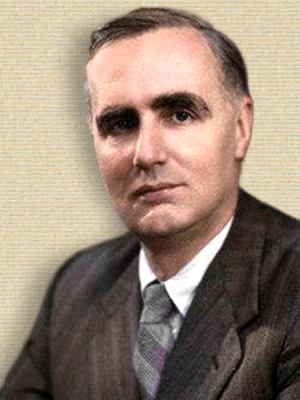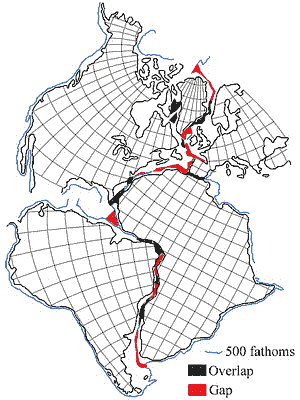 (source)
(source)
|
Sir Edward Bullard
(21 Sep 1907 - 3 Apr 1980)
English marine geophysicist who, with Maurice Ewing, is generally considered to have founded the discipline of marine geophysics. work in geomagnetism. His “dynamo” theory of geomagnetism, explained the Earth’s magnetic field results from the convection of molten material within the Earth’s core.
|
Edward Crisp Bullard
A Luminary in Marine Geophysics
Sir Edward Crisp Bullard, born 21 Sep 1907, in Norwich, England, was an illustrious English geophysicist who left an indelible mark on the field of marine geophysics. He and Maurice Ewing are jointly recognized as the pioneering figures who established this groundbreaking discipline.
Bullard’s academic journey started at Repton School, leading him later to Clare College, Cambridge. Here, his natural aptitude for physics was unmistakable. In 1929, he secured first-class honors in physics, and by 1932, he had already achieved his PhD.
During the tumultuous times of World War II, Bullard’s expertise was sought after for military research. He delved into crucial investigations related to magnetic mines and devised methods for understanding and counteracting the magnetic fields of naval vessels, and thus evade enemy detection—a significant advance in naval defence.
In 1947, Bullard took a significant step in his career by accepting the role of professor of geophysics at the University of Toronto, Canada. During his tenure here, he propounded the innovative “dynamo” theory of geomagnetism. This theory postulated that the Earth’s magnetic field emerges from convective movements of molten material swirling within the Earth’s core. It is now a foundational tenet in geophysics.
After three enriching years in Toronto, he headed back to the UK to steer the National Physical Laboratory as its director. His remarkable contributions to science didn’t go unnoticed. In 1953, he was conferred with knighthood.
By 1957, Cambridge beckoned Bullard back. He helmed the department of geodesy and geophysics till 1974. He also shared his expertise with the University of California from 1963 onwards and lent his voice to advise the U.S. government on pivotal issues related to nuclear-waste disposal.
Bullard’s professional journey was marked by numerous milestones. He began with a study focusing his curiosity on timing the swings of an invariant pendulum to discern minute gravitational changes in the East African Rift Valley. This was followed by his exploration into the rate at which heat from the Earth’s interior escapes through its surface. These geothermal measurements were not only important in their own right but also played a crucial role in understanding various geological phenomena, including the behavior of the Earth’s crust.
Significantly, Bullard pioneered the application of the seismic method to study the vast expanse of the sea floor, a revolutionary step that provided deep insights into geothermal heat-flow and the nature of the oceanic crust. Notably, he was the first to precisely measure this geothermal heat-flow through the ocean's crust.
While Alfred Wegener first proposed the idea of continental drift, it was largely ignored by many geologists of his time. However, Bullard was among the early advocates of the continental drift theory, and through a quantitative approach, his work gave significant empirical backing to Wegener’s idea. Bullard notably harnessed early computer-based analysis to match the continental coastlines on opposite sides of the Atlantic, to validate that they fit together with remarkable precision. This provided significant support for the idea that continents had once been joined together and had since drifted apart. He presented the convincing results to the Royal Society of London.
Bullard’s extraordinary contributions to science were met with numerous accolades. Apart from his knighthood, he became a Fellow of the Royal Society (FRS) in 1941, clinched the Day Medal from the Geological Society of America in 1959, and in 1975, was honored with the Royal Medal by the Royal Society.
The marine geophysics world mourned the loss of its stalwart, Sir Edward Crisp Bullard, when he passed away on 3 Apr 1980.
- Science Quotes by Sir Edward Bullard.
- 21 Sep - short biography, births, deaths and events on date of Bullard's birth.






